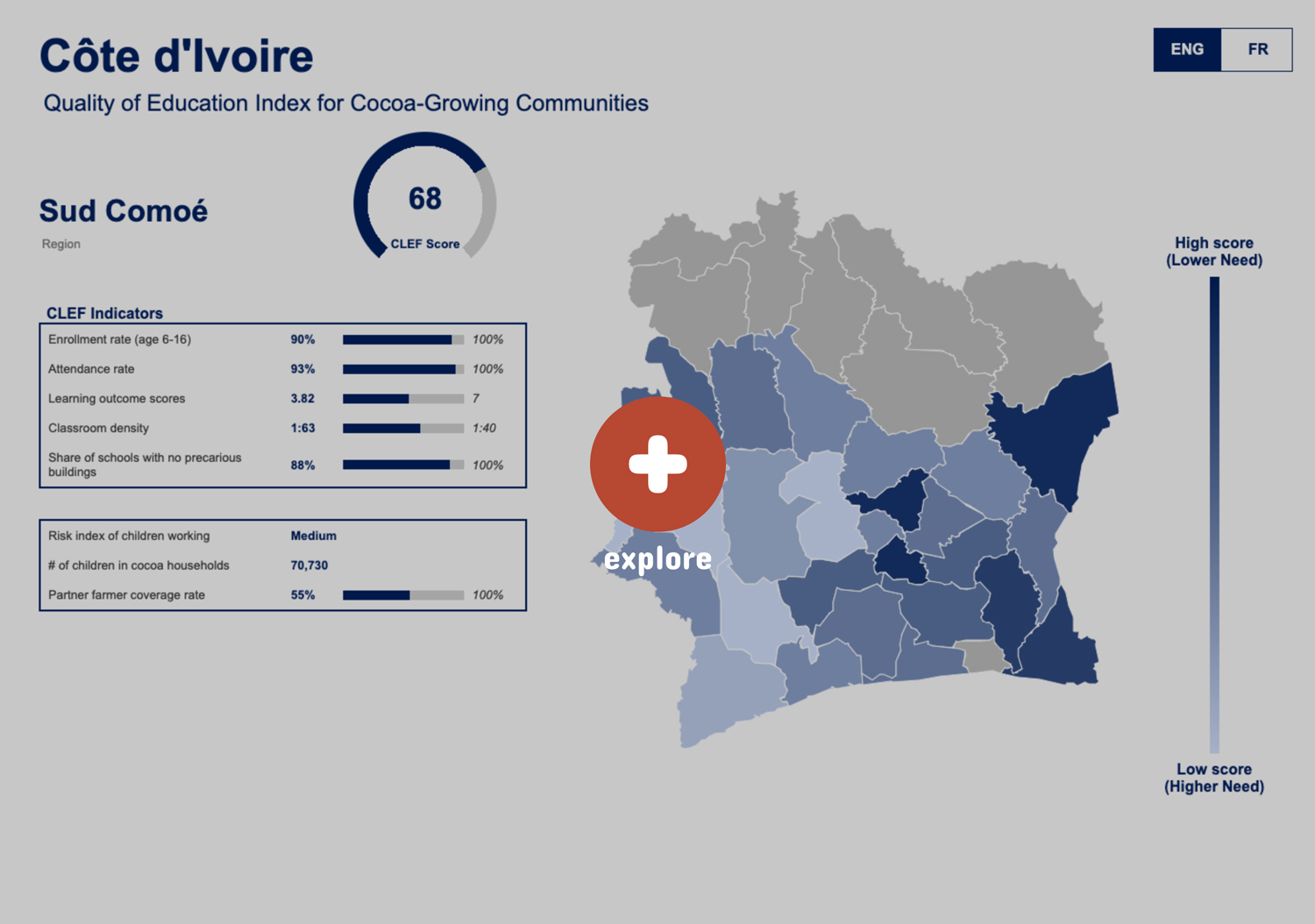Our Approach
CLEF leverages the power of public-private partnerships to address complex intertwined social issues such as ensuring access to quality education and eradicating child labor. CLEF is guided by three overarching principles.
Principle 1
Interventions are evidence-based and designed to achieve a sustainable impact.
Principle 2
Parties are committed to an agreed-upon accountability framework informed by regular monitoring and independent assessments.
Principle 3
Activities are implemented in cocoa-growing regions, starting with the areas of greatest need, according to the Education Quality Index visualised in the Heatmap.
The CLEF theory of change
The CLEF theory of change poses that if access to education is improved, if teachers are trained and adopt evidence-based child-centered methodologies, and if parents become aware of the risks of child labor as well as of the opportunities of education, children’s enrollment, attendance rates, and learning outcomes will improve and the risk of child labor will decrease in cocoa communities.
The Quality of Education Index, or Heatmap, presents cocoa-growing regions according to indicators related to access and quality of education. It serves as an independent evidence-based tool for selecting priority geographical areas for the rollout of CLEF activities.


